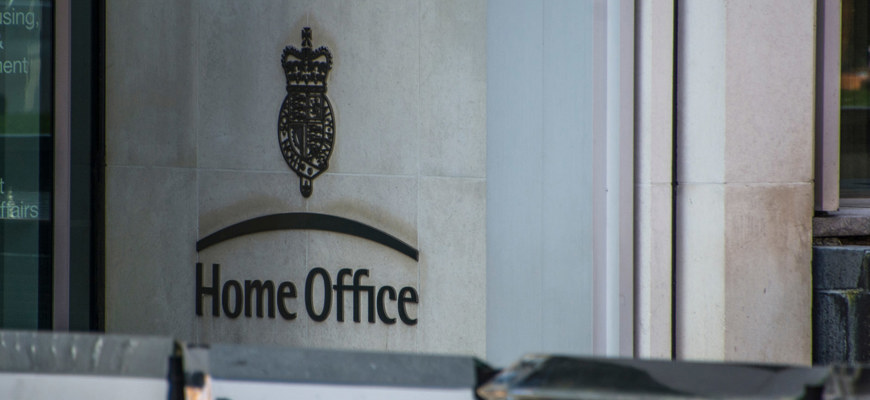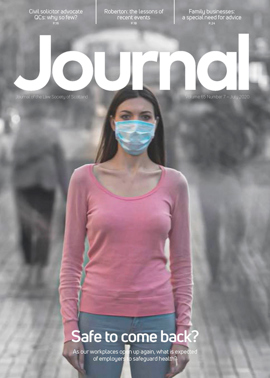Limits of “no recourse”

The Home Office’s “no recourse to public funds” (NRPF) policy has long been controversial. Part of the wider “hostile environment” measures, in general the NRPF condition is imposed on non-EEA migrants who obtain temporary residence in the UK (and have to apply for sequential grants of leave to remain, normally every two and a half years).
The basis for its imposition originates from s 3(c)(ii) of the Immigration Act 1971, since restated in the Immigration Rules (IR), in particular para 276BE(1) and GEN 1.10 of Appendix FM. It renders the individual ineligible for almost all benefits paid by public funds. The power to impose an NRPF condition is discretionary and should not be used where: (1) an applicant is destitute; (2) an applicant would be rendered destitute without recourse to public funds; (3) particularly compelling reasons relating to the welfare of a child exist on account of a parent’s very low income; or (4) other exceptional circumstances apply.
COVID-19 circumstances
Introduced in 2013, the NRPF policy has been the subject of challenge in the past, albeit the Home Office has in effect managed to circumvent any such challenge by reforming the policy to comply with any legal deficiencies (see for example, R (Khadija BA Fakih) v Secretary of State for the Home Department IJR [2014] UKUT 513 (IAC)). More recently, following the widespread closure of businesses in response to the UK Government’s COVID-19 lockdown, the policy has come under closer scrutiny. In R (W, a child by his litigation friend J) v Secretary of State for the Home Department [2020] EWHC 1299 (Admin), the child of a single mother sought urgent suspension of the policy for those unable to work due to COVID-19.
There were six grounds of challenge: (1) the NRPF condition in the child’s case breached s 55 of the Borders, Citizenship and Immigration Act 2009, which requires the best interests of the child to be a primary consideration; (2) adoption of the policy failed to have regard to the differential impact on British children of foreign parents, non-white British children and single mothers, contrary to s 149 of the Equality Act 2010; (3) the policy directly or indirectly discriminates against those of non-British national origin or ethnicity; (4) the policy is “collectively overbroad and/or insufficiently precise”, and hence contrary to the rule of law; (5) the policy deprives British citizens from entitlements provided to prevent children falling into homelessness and extreme poverty, and is therefore ultra vires; and (6) the policy fails to ensure that imposing an NRPF condition will not result in inhuman treatment contrary to article 3 ECHR.
Prior to the hearing, the Home Office conceded that the challenge against the policy raised serious issues that required to be reviewed and determined by the court urgently. It also introduced revised guidance, on 1 April 2020, in light of applications being made to have the NRPF condition lifted during the pandemic.
Facing destitution
As for the court, the focus of the decision was primarily on the article 3 ECHR ground. The judgment confirms the earlier opinion of the House of Lords in Limbuela [2006] 1 AC 396 that the threshold for a breach of article 3 is higher than that required for a finding of destitution within s 95(3) of the Immigration and Asylum Act 1999 (s 95 being the provision under which asylum seekers are generally provided with support while a decision on their asylum claim/appeal is pending).
Given that what was under challenge was provision made in the IR (defined as “subordinate legislation” by the Human Rights Act 1998) and the Home Office “Instruction”, the court began by setting out the tests applicable to such challenges, namely that the scheme was “incapable of being operated in a proportionate way in all or nearly all cases”. The court held that neither GEN 1.11A of the IR nor the Instruction explicitly set out that caseworkers were under an obligation not to impose, or to lift, an NRPF condition where an applicant was suffering or would imminently suffer article 3 mistreatment (nor was there any mention of the latter in GEN 1.11A). These defects could not be, as the Home Office had submitted, considered “purely technical defects devoid of significance in the real world”. Rather the IR and Instruction appeared to confer the decision maker with discretion, rather than an obligation, with the effect of misleading caseworkers and giving real risk of unlawful decisions potentially in breach of article 3. Although at first glance this may appear to be a conflation of destitution and inhuman and degrading treatment, the court also noted (in line with Limbuela) that an individual who is destitute or facing destitution with NRPF would meet that threshold (and, in any event, the policy would be unlawful under common law).
While the case related to an applicant with a dependent child, the implications of the judgment are much further reaching for anyone applying for their NRPF condition to be lifted. Where an applicant can show that they are destitute or will imminently become destitute without recourse to public funds, the Home Office is under an obligation not to impose, or to lift, the NRPF condition. Given the damage to the economy expected to follow the end of the pandemic, the judgment is a positive step for those who find themselves in such a situation in the future.







